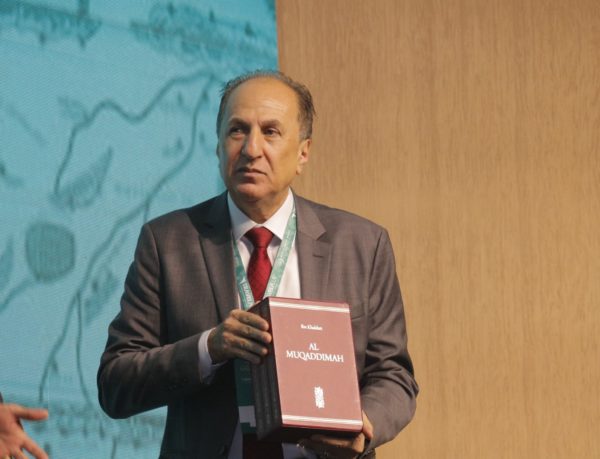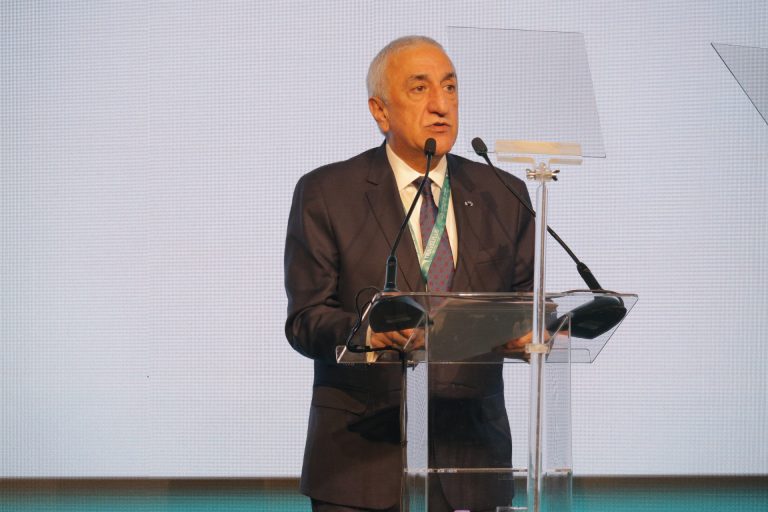São Paulo – Brazil began to build its path as a halal market supplier over 40 years ago, gained a vast space in animal protein, and now is in a leading position in the industry. Recounting the country’s history with halal, the chairman of the certification entity FAMBRAS Halal, Mohamed Zoghbi, gave his opening speech at the 2nd Global Halal Brazil Business Forum (GHB).
The event takes place this Monday (23) and Tuesday (24) in the capital of São Paulo, held by the Arab-Brazilian Chamber of Commerce (ABCC) and FAMBRAS Halal as the main gathering for debate and networking on the halal market, which comprises products and services following the requirements of the Islamic religion and safe for consumption by Muslims.
“FAMBRAS Halal is proud to have opened the Islamic market to Brazil 44 years ago. This story is inherently linked to my family, as it was my late father, Hajj Hussein Mohamed el Zoghbi, a Lebanese born in 1920, who was responsible for Brazil’s first export of halal poultry. Six hundred fifty tonnes were sent to Saudi Arabia and Kuwait,” said Zoghbi.
The FAMBRAS Halal chairman said after that, the volume of halal protein exported by Brazil has soared. “And that put us in a leading position,” he said. Zoghbi said as Brazil is a country with an Islamic minority, not everyone knew what halal was, and this knowledge was built over the years.
“The work to raise awareness about the potential and opportunities of this market, an effort by entities such as our certification body and the ABCC, for example, meant the search for more technical and qualified information increased significantly,” he said. Zoghbi said GHB’s program is also a part of this effort and an initiative to learn how to continue working with maximum excellence, strengthening trust in the Brazilian product.
“I would like to add something very important about the sad global context affecting us all: The conflict in the Middle East. We want peace to prevail and human lives to be preserved, something sacred to Muslims and Islam. We want this to be considered above any difference. This is a constant request in our prayers, in the hope that, for God, nothing is impossible,” said Zoghbi.
Panels
The vice-chair of FAMBRAS Halal, Ali Zoghbi, gave an overview of this GHB’s theme: Innovation, technology and sustainability driving business, and the panels to be discussed over the event’s two days. “Those that have the halal certification are halfway to ESG in their company,” said Ali Zoghbi, commenting on the sustainability panel.
According to him, learning about the Muslim consumer, which will be the world’s largest demographic in a few years, is crucial. Regarding logistics, Zoghbi spoke about the importance of halal to avoid cross-contamination. Concerning the tourism panel, the vice-chair of FAMBRAS Halal cited the effort for a culture of peace and inclusion. Respecting differences is one of the pillars of Islam. Understanding how to welcome people from different religions and cultures has to be a premise of this multi-ethnic nation, which probably has the greatest asset in its diverse social fabric,” he said.

About the technical-scientific conference, Zoghbi said they had to choose between numerous submitted papers. “I was surprised because we received a massive amount of papers; I had no idea so many people in this country were researching about halal. Very important topics will be debated,” he said.
The GHB is supported by the International Halal Academy, the Islamic Chamber of Commerce, Industry and Agriculture, the Union of Arab Chambers, and the Arab League, and held in partnership with the Brazilian Federal Government, Ministry of Development, Industry, Trade and Services, Ministry of Foreign Affairs, and ApexBrasil. Its sponsors are BRF, Marfrig, Minerva Foods, Laila Travel, Turkish Airlines, Brazilian Tourism Board (Embratur), Travel Plus, H2R Insights & Trends, World Logistic Passport (WLP), Bank ABC in Brazil, Seara, Pão & Arte, Cristal Plus, Pamunã Alimentos.
*Reporter Bruna Garcia also contributed to this story.
Translated by Elúsio Brasileiro




